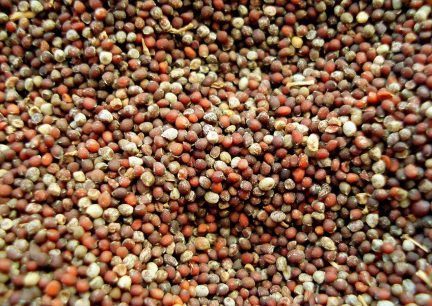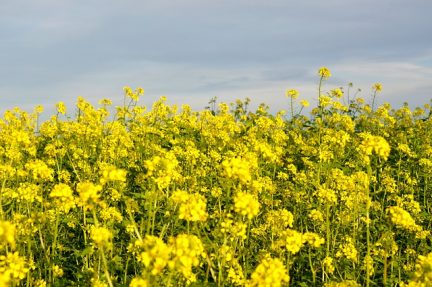For most people, mustard is just another condiment. But for others, it’s a dangerous, allergenic substance — which is why Emport LLC is so pleased to announce that the AlerTox Sticks line of rapid, on-site allergen test kits now includes AlerTox Sticks Mustard.
Although mustard is not one of the top 8 allergens covered by FALCPA in the US, regulations in Canada and many parts of Europe require it to be treated and labeled just like the usual culprits (peanut, milk, egg, etc).
Mustard isn’t just for hot dogs. How well do you know the mustard plant, and its many uses?
What are some unexpected foods where mustard seed (or related seeds) can be an ingredient?
 Pickled products (eg gherkins or pearl onions)
Pickled products (eg gherkins or pearl onions)- Mayonnaise, salad dressings and spicy sauces (eg barbecue sauce and tomato ketchup)
- Vinaigrettes
- Various flours for making pizzas and fritters
- Dehydrated soup mixes
- Fish paste
- Baby and toddler pre-packaged food
- Indian curries
- Processed meats (including sausages and deli meats)
- Wasabi
Did you know:
Since mustard is not on the list of allergens that require labeling in the United States, mustard oil can be listed in the ingredients of a food as simply “vegetable oil” and mustard seeds or powder can be listed as simply, “spices”. This can make things quite difficult for the mustard-allergic among us!
Where else might mustard be found?
Because mustard is considered to have antibacterial, anti-fungal, and laxative effects, it can be found in some over-the-counter and prescription medications and treatments. Be sure to check the ingredients in your personal care products and discuss the contents of any potentially allergenic prescriptions with your pharmacist.
 What even IS mustard?
What even IS mustard?
Mustard is a member of the Brassica family of plants. Although they are not commonly eaten in the first place, the seeds or sprouted seeds from other members of the Brassica family should also be avoided by mustard-allergic individuals. This includes plants such as cabbage, cauliflower, broccoli and Brussels sprouts.
The seeds of the mustard plant are the most commonly eaten part, and they can be ground to make a mustard powder or flour, pressed to extract mustard oil, or simply used on their own as a spice.
Some people with allergies to mustard seeds may also be allergic to mustard greens, which can be prepared in a number of ways: pickled, preserved, stewed, sautéed, etc.
Who is affected?
As with most allergies, the group impacted most by mustard allergy are children under the age of five. Many children outgrow their reactions to mustard as they age. Approximately 1 percent of children with food allergies are allergic to mustard, according to Clinical Immunology and Allergology researchers in Nancy, France. As with any food allergy, reactions can be quite serious regardless of the age of the allergic person.
What are typical symptoms?
Someone that has an allergy to mustard can experience a range of symptoms affecting their skin as well as mucous membranes and digestive tract. As with other allergic reactions to food, severe symptoms can include anaphylaxis and can require epinephrine.
AlerTox Mustard
AlerTox Sticks kits are specially designed to help food manufacturers monitor levels of common allergenic proteins at every step of production and in a variety of matrices. As with all of our tests, the kits are easy to use, accurate, and robust.
Download the AlerTox Fact Sheet for easy reference.
AlerTox Sticks Mustard tests can detect mustard content of 1ppm, measured as ground raw unprocessed mustard seed. The test kit will detect the presence of all related plants, but will not detect the presence of mustard greens.
Learn More About Mustard Allergy
- Mustard allergy in children on PubMed
- Mustard Allergy: The facts on Anaphylaxis Campaign
- Register on Allergence for reporting and recalls.


